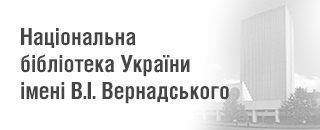Academic integrity
Academic integrity policy
The scientific journal "Public Administration: Concepts, Paradigm, Development, Improvement" accepts for publication only original materials and articles that have not been published before and have not been submitted for publication in other journals.
To detect textual borrowings in the submitted manuscripts, the Editorial Board uses the Unicheck software. The manuscripts in which plagiarism or textual borrowings without references to the original source are detected are rejected by the Editorial Board in order to further determine the reasons and circumstances of the borrowings.
Plagiarism before publication. The editorial board of the collection analyses any case of plagiarism on its merits. If plagiarism or textual borrowings are detected by editors or reviewers at any stage before the publication of the manuscript, the author(s) are warned about the need to find out whether the detected plagiarism is really the author's borrowing, or vice versa - it belongs to the author as his or her property, but was borrowed by another person and published, that is, for a peer-reviewed article it is not plagiarism. If this is not the case, the author is asked to rewrite the text or make a reference to his or her own source. If the plagiarism is more than 15%, the article may be rejected.
Plagiarism checking policy. Manuscripts found to be plagiarised are evaluated based on the amount of plagiarism present in the manuscript: if the plagiarism is less than 15%, the manuscript is immediately sent back to the authors for revision of the content. Authors are advised to review the textual borrowings and plagiarism of the manuscript and resubmit a new version of the manuscript. If there is more than 15% plagiarism, the manuscript is rejected without editorial review.
The percentage of plagiarism is calculated using software and evaluated by the editorial board.
Plagiarism after publication. If plagiarism is detected after publication, the editorial board will analyse this fact. Pages containing plagiarism will be marked in the PDF file. Due to the scale of plagiarism, the document may be withdrawn (deleted).
Recommendations for authors to avoid plagiarism:
use quotation marks for words and phrases taken from the source's sentences;
do not change parts of a quotation within a sentence;
use a space and ellipsis for the part of the quotation you have removed;
use parentheses for your own words;
limit the use of direct quotations, use them to reproduce the opinion of the author of the article in question.
Autoplagiarism. The Editorial Board does not support the excessive use of individual quotes and fragments of other articles by the author, although it does not ensure their reasonable and moderate use in order to clarify the verbalised opinion or to make appropriate references to previously conducted and published research.






